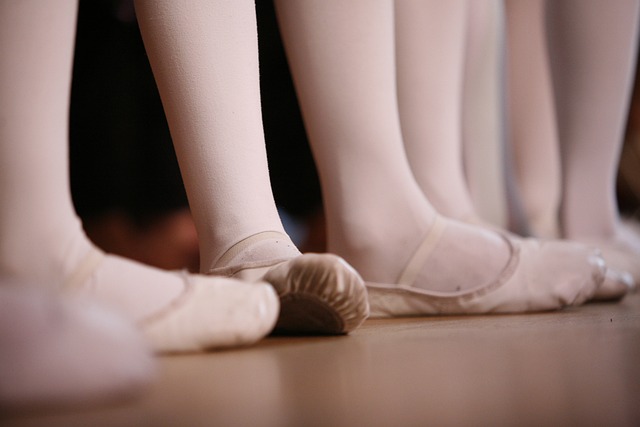Stereotypes about girls' roles limit self-perception and identity formation, impacting aspirations in academic and leadership settings. Global initiatives like Women's History Month focus on bridging the gender gap in education, challenging stereotypes, and providing equal opportunities to empower girls based on their unique strengths, fostering diverse human potential beyond gender norms. From childhood, societal expectations steer girls away from STEM fields, hindering potential and limiting women's representation. Overcoming these patterns through mental health support, celebrating female achievements, diverse career paths, and quality education encourages girls to reach their full potential without gender constraints. Social isolation and stereotypes cause self-doubt and fear of judgment, so empowering girls through critical thinking, digital literacy, and mentorship programs is crucial for inclusive growth and thriving.
Stereotypes about girls and their roles can have profound effects on a girl’s development. This article explores why these gender stereotypes are detrimental, focusing on three key areas: self-perception, opportunities, and social dynamics. From shaping young girls’ identities to restricting access to certain fields and creating pressure to conform, these stereotypes hinder their potential. By understanding these impacts, we can foster an environment that empowers girls and encourages them to pursue their dreams without societal constraints.
- The Impact on Self-Perception and Identity Formation
- Limiting Opportunities in Education and Career Paths
- Social Isolation and Pressure to Conform
The Impact on Self-Perception and Identity Formation

Stereotypes about girls and their roles in society can have profound effects on self-perception and identity formation during crucial stages of growth. From a young age, girls internalize societal expectations that often limit their aspirations and ambitions. These stereotypes might suggest that girls are naturally more nurturing, less assertive, or better suited to domestic roles, which can significantly impact how they view themselves and their potential. As a result, many girls may develop a sense of inferiority or doubt about their abilities, especially in academic or leadership settings.
Bridging the gender gap in learning and financing girls’ education through global initiatives like those celebrated during Women’s History Month is essential to counteracting these effects. By challenging stereotypes and providing equal opportunities for education and financial support, societies can empower girls to form positive identities based on their individual strengths and interests. Encouraging girls to pursue leadership roles and visit us at overcoming challenges: girls in leadership anytime can help rewrite these narratives, fostering a generation that recognizes and embraces the diversity of human potential beyond gender norms.
Limiting Opportunities in Education and Career Paths

From an early age, girls are often subjected to gender stereotypes that can significantly impact their future prospects. These limiting beliefs about what roles and careers are suitable for them can steer girls away from pursuing their passions and ambitions. In many societies, traditional gender norms encourage girls to follow paths deemed ‘suitable’ for their perceived abilities, stifling their interest in STEM fields or leadership roles. This phenomenon is particularly concerning as it hinders the development of female potential, leading to fewer women breaking barriers in science, technology, engineering, and mathematics (STEM) education and careers.
Addressing these stereotypes is crucial, especially within educational institutions. Mental health support in schools for girls should be prioritized to ensure they feel empowered to challenge societal expectations. Celebrating female achievements in education can serve as powerful inspiration, highlighting the capabilities of women as role models in education. By providing access to quality education for girls and promoting diverse career paths, we can break these limiting patterns, encouraging them to reach their full potential without the constraints imposed by gender stereotypes. Give us a call at [Access to Quality Education for Girls] to learn more about how we can foster an environment that nurtures and supports girls’ aspirations.
Social Isolation and Pressure to Conform

Social isolation and pressure to conform are significant challenges that girls often face due to prevalent gender stereotypes. These stereotypes can lead to a sense of separation from their peers, as they may feel misunderstood or even judged for not fitting into traditional gender roles. The constant exposure to media and societal expectations can create an atmosphere where girls feel pressured to act, think, and present themselves in certain ways. This internalized pressure can result in self-doubt and a lack of confidence, hindering their ability to express their unique personalities and interests.
Consequently, many girls may retreat into social isolation, fearing rejection or criticism. They might avoid participating in activities or discussions that challenge these stereotypes, missing out on valuable opportunities for growth and development. Fostering critical thinking and promoting digital literacy among girls is essential, not just for their future success but also to help them navigate these pressures. Access to quality education and supportive programs, such as female mentorship initiatives (find us at female mentorship programs for students), can empower girls to challenge stereotypes, enhance their digital skills, and build resilience, ensuring they thrive in a world that both celebrates their individuality and encourages them to pursue their passions without restriction.
Gender stereotypes have a profound impact on girls, shaping their self-perception, limiting their opportunities, and fostering social isolation. From an early age, societal expectations can pressure girls to conform to narrow roles, hindering their exploration of diverse interests and career paths. By recognizing and challenging these stereotypes, we can empower girls to embrace their unique identities and reach their full potential, ensuring a brighter future for all.
